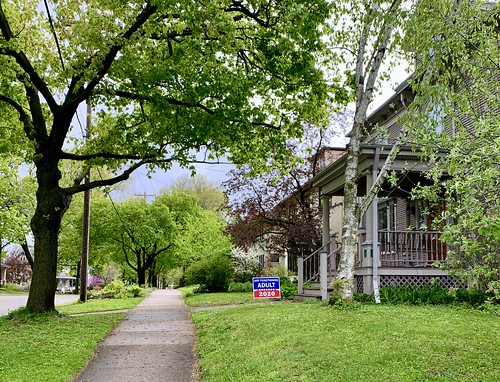"Like punk, Weird Christianity has its own, clearly defined aesthetic. Many Weird Christians across the denominational and political spectrum express fondness for older, more liturgically elaborate practices — like the Episcopal Rite I, a form of worship that draws on Elizabethan-era language, say, or the Latin Mass, or the wearing of veils to church.... One Weird Christian is Ben Crosby... a student at Yale Divinity School.... Raised Lutheran, he was unprepared for what he found as a first-year undergraduate at Yale in 2009 when he attended an Anglo-Catholic parish. 'I walked into a service and it’s a big, beautiful, 19th-century neo-Gothic nave, clouds of incense wafting up toward the ceiling, candles everywhere,' Mr. Crosby told me. 'It was like nothing I’d experienced before.' Likewise for Rod Dreher, a senior editor and blogger for The American Conservative magazine.... [W]hen he was 17, he told me, he visited Chartres Cathedral while on a group tour of France and he found himself moved by the majesty of the Gothic architecture. 'I think this is why a certain kind of person really is drawn to the older, ritualistic, aesthetic forms of Christian worship,' he said. 'It speaks to something deep inside us, and, I think, it is a kind of rebellion against the ugliness and barrenness of modernity.'... This sense of rebellion — of consciously being at variance with modernity — permeates Weird Christian politics no less than its aesthetics.... [F]or plenty of Weird Christians, their faith is a call to a far more progressive politics. Like their reactionary counterparts, they see Christianity as a bulwark against the worst of modernity, but they are more likely to associate modernity’s ills with the excesses of capitalism or with a transactional culture that reduces human beings to budget line items, or anonymous figures on a dating app.... Weird Christianity represents an alternative to 'both more liberal and conservative forms of American Christianity,' said Mr. Crosby.... In the age of lockdown, when so much of life exists in a nebulous digital space, a return to the Christianity of the Middle Ages — albeit one mediated through our screens — feels welcome.... Like the hipster obsession with 'authenticity' that marked the mid-2010s, the rise of Weird Christianity reflects America’s unfulfilled desire for, well, something real...."
From
"Christianity Gets Weird/Modern life is ugly, brutal and barren. Maybe you should try a Latin Mass" by Tara Isabella Burton (NYT).
I'm not getting the use of the word "weird" here. Burton makes it sound like she's involved in coining (and promoting) the term: "Many of us call ourselves 'Weird Christians,' albeit partly in jest." But she seems to be calling
Episcopalians weird. Maybe I'm a little too close to the experience, but to me, Episcopalian is the least weird religion. Yes, the aesthetics are good, and high-quality aesthetics are appealing. But what's weird? You could find all religion weird, but I don't think "the older, ritualistic, aesthetic forms of Christian worship" are particularly weird. In fact, the purported "weirdness" of the aesthetically appealing form of worship is a shield from the real weirdness in religion:
true belief.
It's funny. I'm reading (rereading)
a novel that has a character whose problems are initially revealed in terms of an inability to say that anything is "bad." She "would only say that this was very 'weird.'"
... Patty was incapable of going past “weird”... the worst she would say aloud... was that [something] was very weird....
The reliance on "weird" is a tell.
Here's the place in the post where I look up the key word in the Oxford English Dictionary. It's the older, ritualistic, aesthetic side of me. "Weird" originally meant:
Having the power to control the fate or destiny of human beings, etc.; later, claiming the supernatural power of dealing with fate or destiny.
Later, in the 1800s, there was:
Partaking of or suggestive of the supernatural; of a mysterious or unearthly character; unaccountably or uncomfortably strange; uncanny.
It seems that religion is inherently
weird. It's weird to think you're saying something special by calling your little corner of religiosity
weird. What is the motivation to call your religion "weird"... and then back off and say that's "partly in jest"? People who call themselves weird... what's up with them? Especially, when all they're doing is Episcopal Rite I. Are they doing it partly in jest? Is it "weird" because they fear it's only cushioning from "the ugliness and barrenness of modernity"? Or is it weird because they find they truly believe?







